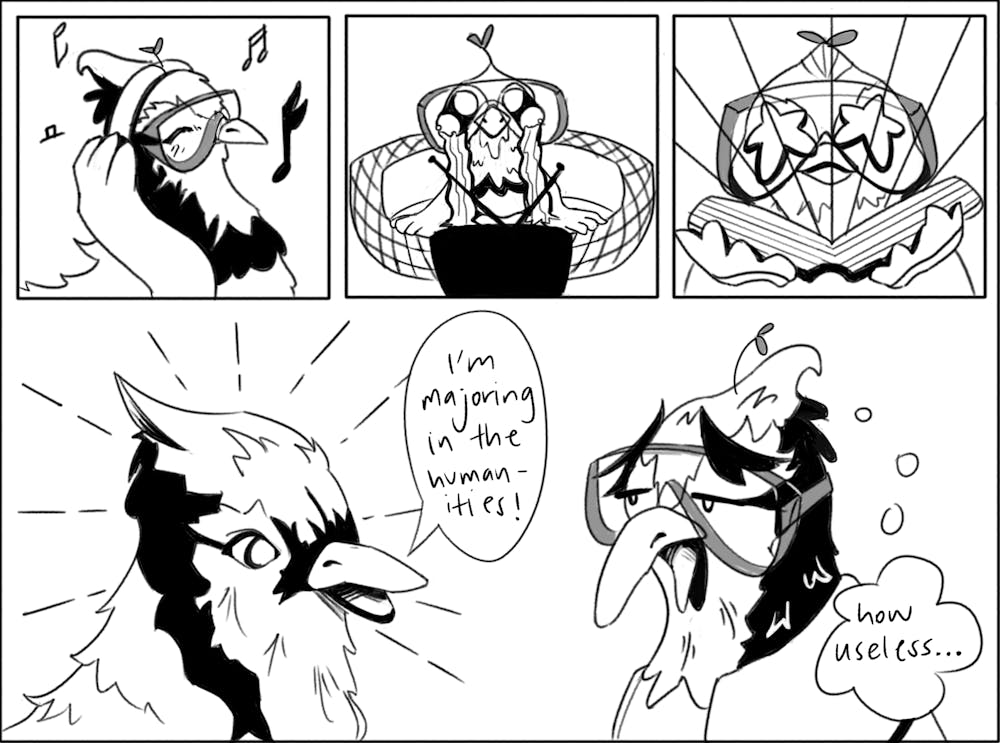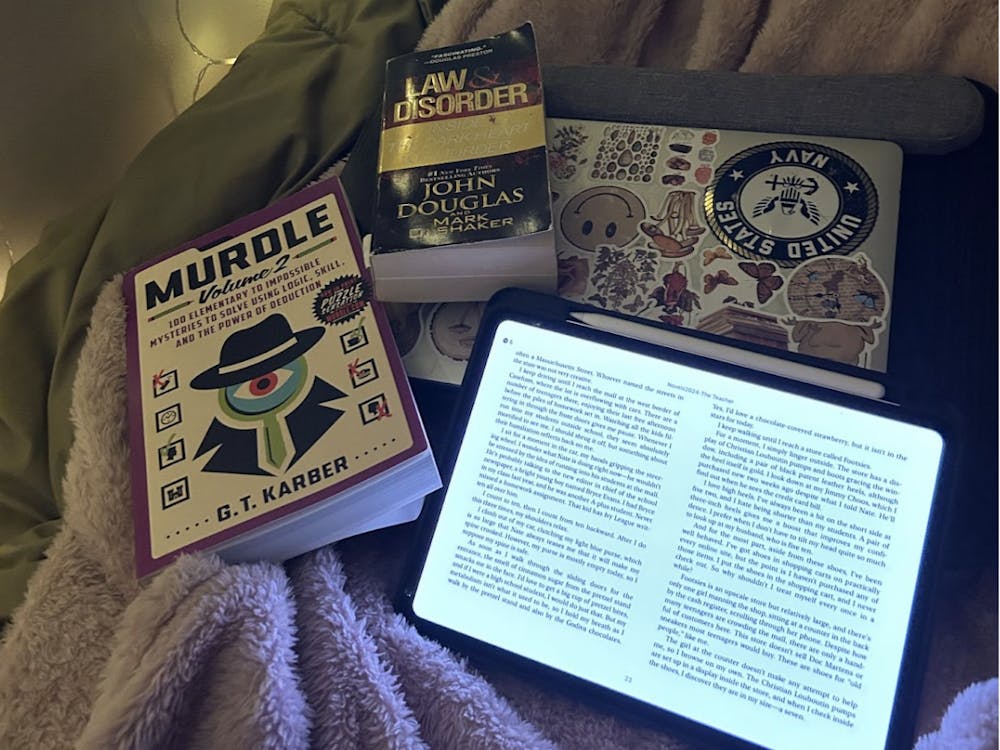October is National Arts and Humanities Month, and perhaps it is ironic that in a month designed to celebrate music, literature and philosophy, we are reflecting on just how neglected these pursuits are on college campuses like Hopkins.
The number of bachelor's degrees in the humanities conferred by universities has declined by a third in the last decade to less than 10%. In the 2021–2022 school year, only about 6% of the degrees awarded by Hopkins were in the humanities.
We have likely all heard the wisdom, perhaps from well-meaning parents or peers, that majoring in the humanities leads to a lack of employability, limited professional utility and lower post-graduation salaries. However, humanities, STEM and business majors have been found to have relatively similar rates of unemployment. Whereas a biology degree may constrict one to more narrow career paths, humanities degrees have much broader applicability, equipping graduates with professional skills in many latent ways. While it is true that STEM majors start off with higher salaries than their humanities or social sciences counterparts, they catch up later, with earnings being relatively similar by age 40.
We need medicine in our daily lives to keep us healthy, science and technology to create the world we physically inhabit, and economics to manage the web of interactions in society; but more intangibly yet just as importantly, we need the humanities. As John Keating famously says in Dead Poet’s Society, "Medicine, law, business, engineering — these are noble pursuits and necessary to sustain life. But poetry, beauty, romance, love — these are what we stay alive for."
Whether by unwinding with a book that puts human experiences that we struggle to recognize into words, watching a Netflix show to unwind after a long day or listening to an album that brightens your mood, we depend on the humanities for our self-fulfillment. Your favorite TV shows, novels, poems or movies were, for the most part, written and created by former humanities majors.
It is not a coincidence that the time of the Scientific Revolution was also the time of the Renaissance and flourishing of the arts. Scientific progress needs to be paralleled with progress in the humanities. As George Lucas said, “The sciences are the “how,“ and the humanities are the “why” — why are we here, why do we believe in the things we believe in.”
There is a tendency for some in STEM fields to view the humanities as inferior or superfluous when compared to the fields of science or engineering that have material impacts. Students at schools with strong STEM programs such as Hopkins may be particularly prone to viewing the humanities as requiring little effort and having little impact.
However, just because humanities majors don’t have problem sets due at 11:59 p.m. on Friday night or 8 a.m. physics exams does not mean that their education is not challenging or inherently impractical. There is value in practicing solving mathematical problems and analyzing data, but there is also equivalent value in learning how to write a compelling original argument or analyzing ancient thinkers. These are a few of the many soft skills that can be developed through humanities courses such as Expository Writing or small group seminars, and no matter what your planned profession is, the humanities and the “soft skills” they impart will benefit you.
The study of the humanities is critically important so that we don’t create doctors who lack empathy or scientists who can’t communicate. Recently, we have seen the problems that can arise when scientific achievements cannot be communicated effectively, such as with the hesitancy of certain populations to take the COVID-19 vaccine or the absence of climate change action.
It would be remiss to ignore that the humanities and social sciences have recently come under attack by politicians and become used as a cudgel in right-wing culture wars. Republican politicians like Florida Governor Ron DeSantis and former President Donald Trump have accused universities of “indoctrination” in their humanities and social sciences programs. The governor-appointed Florida Board of Education has even stripped sociology from the core curriculum of Florida’s public universities.
There has also been an alarming increase in book bans at public schools in over 41 states, with a majority of banned books featuring race or gender themes, such as All Boys Aren’t Blue by George M. Johnson and The Hate U Give by Angie Thomas. Devaluing the humanities can pave the way for these forms of censorship that are often used by dictators to suppress their people.
To authoritarians, dissent — often borne out of the humanities and social sciences — is unacceptable.
These regimes have come to power by attacking education and freedom of political speech, highlighting that protecting humanities is inherently tied to protecting democracy. It is therefore unsurprising that Trump has boasted about cutting funding for federal arts and humanities programs, and his administration has called them “wasteful and unnecessary.”
Going back to our “Hopkins bubble,“ it is important for the student body to change their perspective towards humanities. As of now, Whiting School of Engineering students are required to take a minimum of 18 credits in Humanities and Social and Behavioral Sciences, but we are all familiar with the trend of students choosing the “easy A” classes and not engaging deeply with the humanities.
College is one of the few times in life when we have the privilege to focus on our curiosities. We should use our time (and tuition) to make our college experience more than getting a degree at the end of four years by taking humanities courses not to boost our GPA, but rather to develop critical skills.





